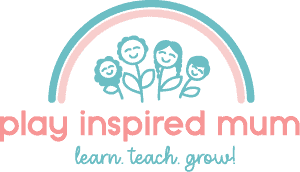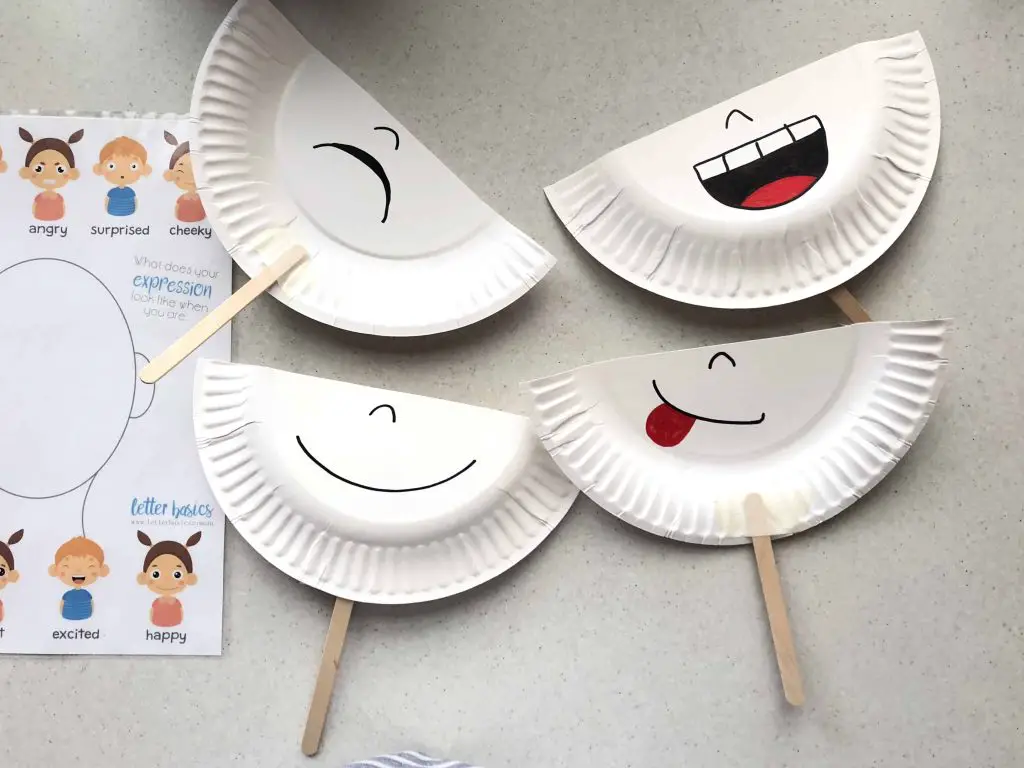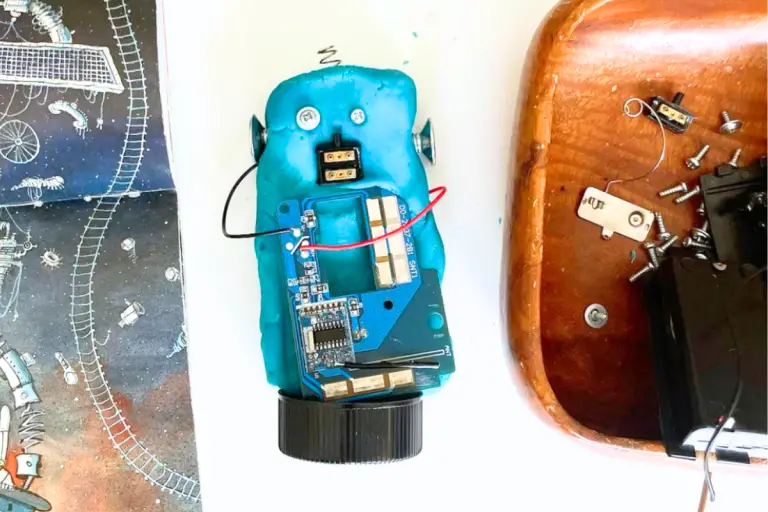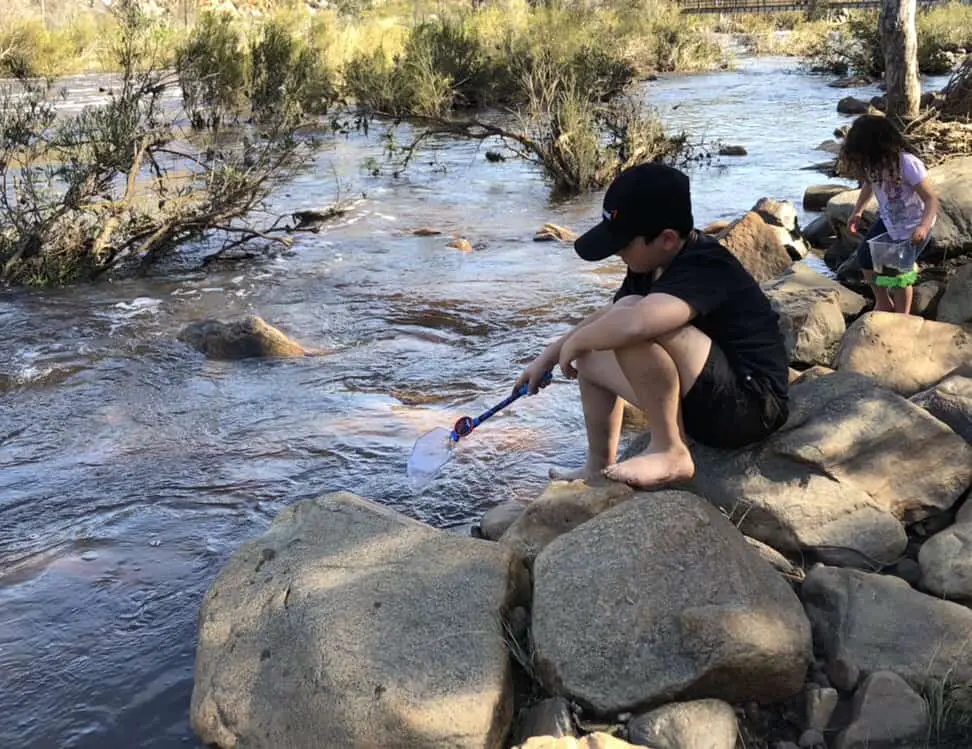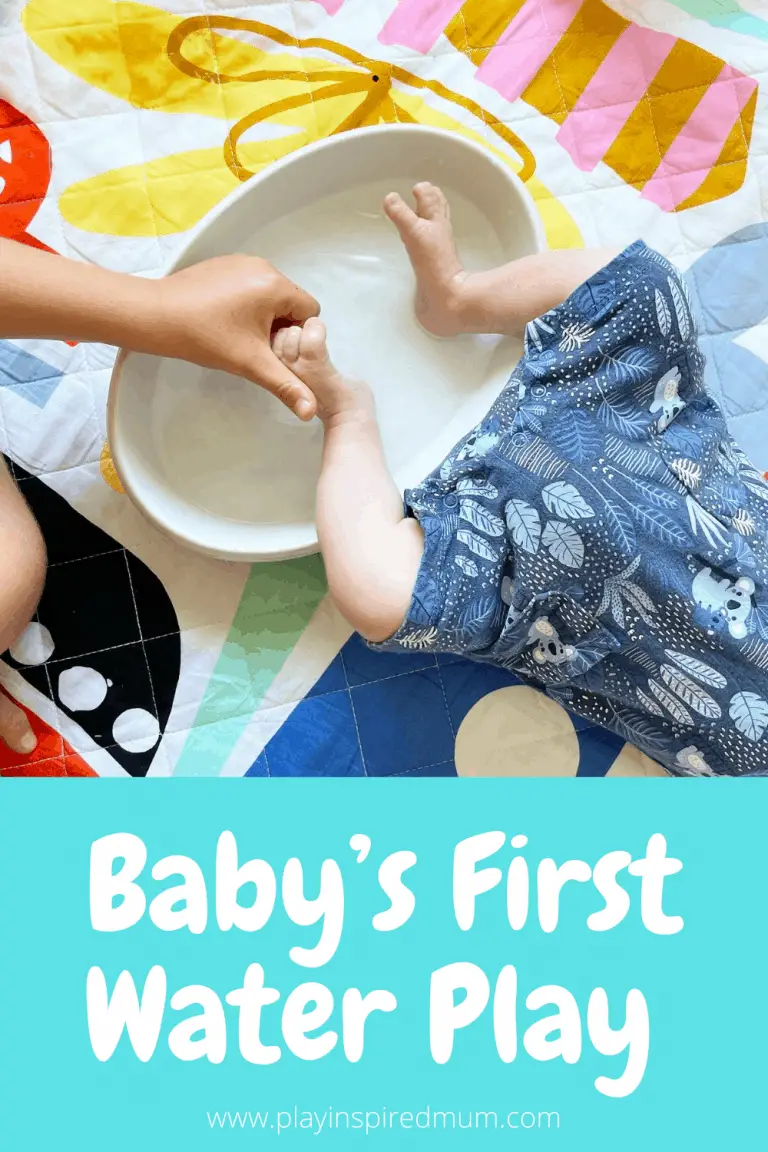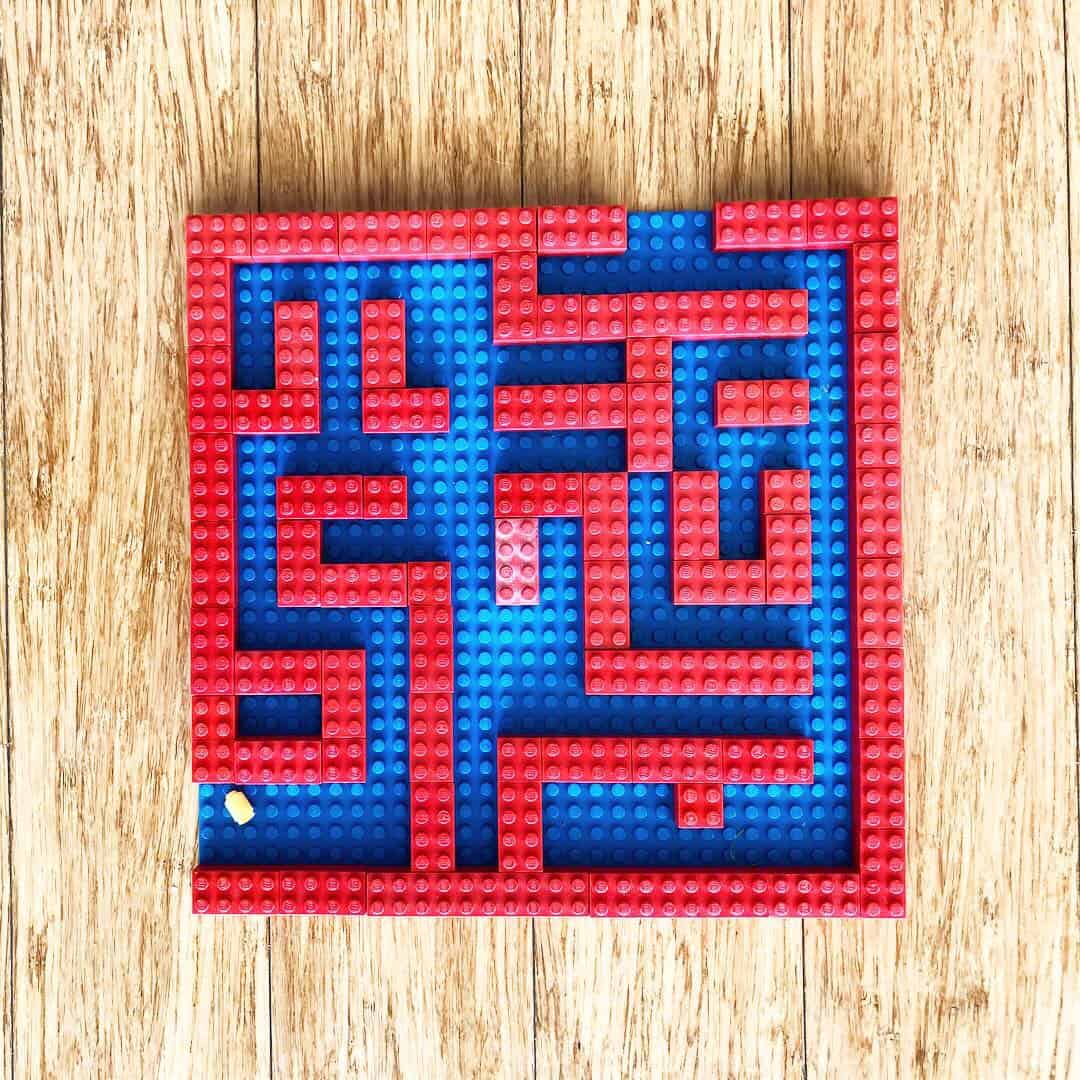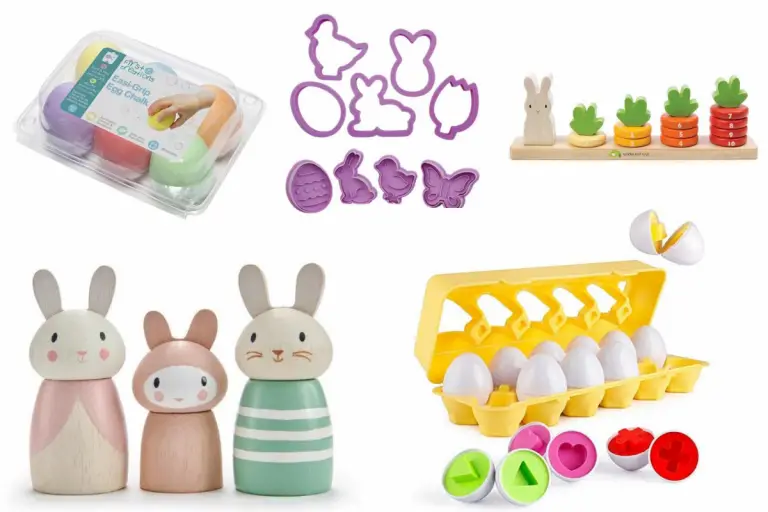Beginners Sensory Play Course Review
Disclosure: This blog contains affiliate links which I may earn a small commission from if you purchase through them, at no extra cost to you.
Okay it’s time to get excited and feel the weight lift off your shoulders- the Beginners Sensory Play Course is a comprehensive and insightful introduction to the world of sensory play for parents, early childhood educators, and teachers alike and it is ready to play… now.
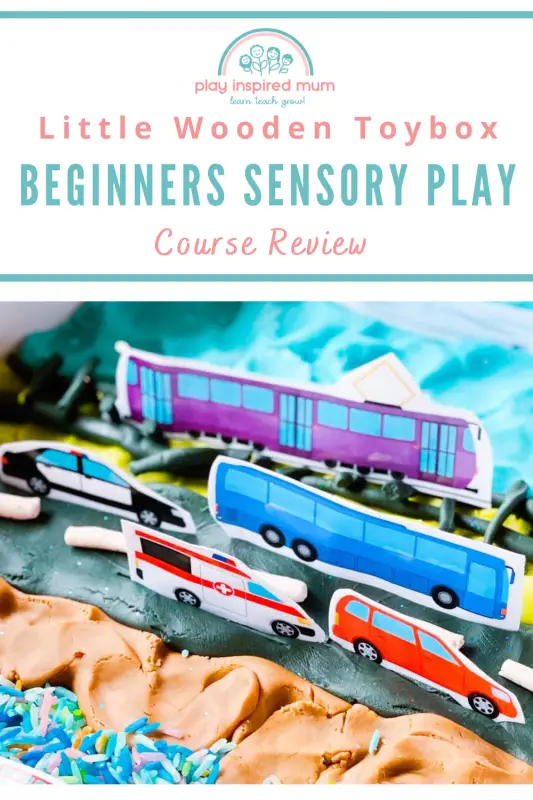
Little Wooden Toybox’s Beginners Sensory Play Course Review
Toddlers are hard.
Between working out what they are prepared to eat for the day, stay on top of the washing and shower, it can be exhausting.
Then it’s wondering what to do with them when you – are – just – so – tired.
Yes, you have hundreds of ideas saved on Pinterest and your Instagram feed is overflowing with play-inspiration but even with all these ideas, you still haven’t set up a tray with rice for your kid to play in.
Yes, it’s messy BUT there is so much more happening for your little one than just rice flying across the room.
What is the Beginners to Sensory Play Course?
The Beginners to Sensory Play Course is tool aimed teach you
- importance of sensory play
- skills developed through play
- sensory play recipes
- learning activities
- play prompts
The course is available in PDF or video training – are you a visual learner or audible learner? Either way, you are covered.
There is an hour of training spilt over 13 mini lessons. Personally I found the video training perfect as I was able to listen and watch while folding laundry. Two eggs one stone!
The content is totally relatable, comprehensive and engaging. The scrumptious bite sized lessons are perfect to pause and pick up between the needs of the family.
Having all the 321 pages of printables in one place is invaluable also.
Who is the Beginners Sensory Play Course for?
This course is perfect for toddler and preschooler parents, early childhood educators, preservice teachers, and teachers.
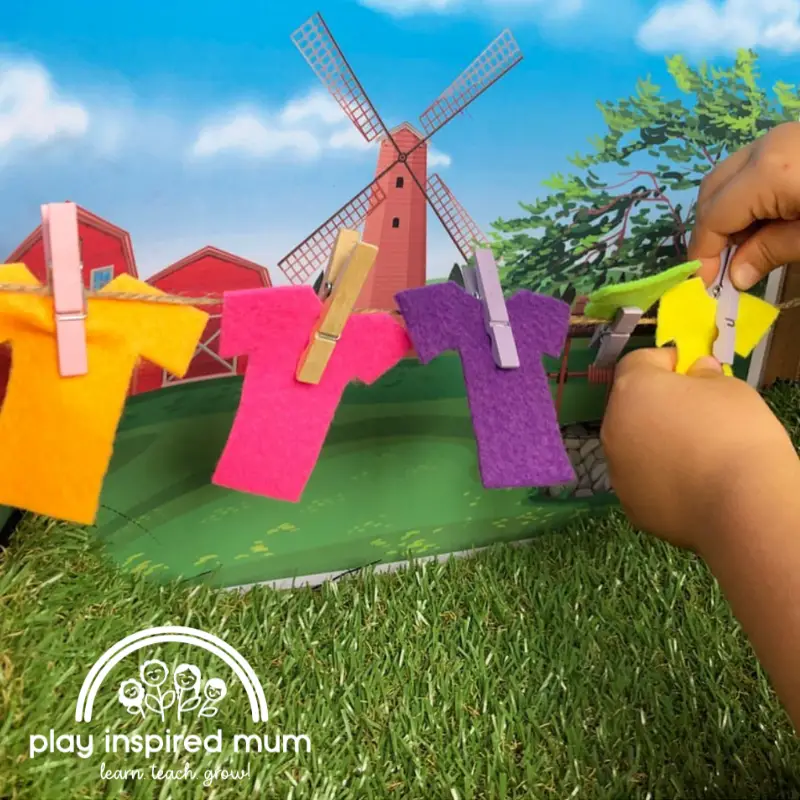
Do children need sensory play
Children gain so much through interaction with their environment. Sensory play can play a valuable and important role in your children’s development. From birth to early childhood sensory play ignites and builds the nerve connections in your child’s brain.
Sensory play contributes to so many areas of development
- feeds a child’s natural curiosity
- encourages learning through exploration
- allows for problem solving
- encourages creative thinking
- teaches them an awareness of their surroundings
- encourages the development of speech and language skills
- allows for development fine motor skills
- improves memory recall
- encourages emotion regulation
- opens opportunity for coordination skills
Children who engage with open ended, messy play learn faster. Allowing toddlers to experiment and explore through sensory play leads to superior learning experiences.
These kids learn to love learning.
Is sensory play really necessary?
Let’s go back to that tray of rice.
What’s the first thing you think of when you read “{insert your toddler’s name here} and tray of rice”?
Mess all over the floor?
Doing what they want, not following your cues?
Kid sticking their feet in amongst it?
Just to let you know, these are real situations. They are valid and it is okay.
Also… there are a few other things that are happening.
Your child is learning:
- how the rice falls as it pours from a cup
- that their hand still exists even though they can’t see it buried under the rice
- what happens when they move quickly through the grains
- the sound the rice makes as it falls from a lower height compared to a taller height
- that a cup has a limited capacity
- what happens when the capacity of a cup is reached
- how to regulate themselves by tuning into sound
- how to isolate sounds within their environment
- what happens when pressure is applied to the rice
- that a small cup of rice is heavier than a larger cup of rice
- how to coordinate their hands and vision to complete a task
With all that learning, can you set aside finding a few grains of rice for a few days after a ten minute clean up?
Sensory play is so rich with learning, physical developmental opportunities and cognitive development opportunities. It’s multi faceted and equips kids with skills for the long yard.
So in short, yes. Sensory play really is necessary.
The Beginners to Sensory Play Course will open your eyes to the incidental learning that happens through play. It will give you permission to see past the mess and see the end goal which is something we all want for our kids.
We want our kids to thrive.
Not just survive, we want them to thrive.

How do you start sensory play?
So you want to get started with sensory play but not sure where to begin.
The Beginners to Sensory Play Course has over 20 different sensory play ideas, recipes and activities.
Most of these are using materials and ingredients you likely have in the house already – no need for fancy pants equipment here!
Keep. It. Simple.
All our most successful play experiences have been the less complicated ones.
It’s amazing (and rewarding) how long a kid can play with a metal spoon and packet of cotton balls.
From there, there are invitation to play ideas that you can adopt into your day along with 321 pages of printables to use along side, within, underneath or on top of your sensory play.
There is no need to focus on 123s and ABCs however these concepts can be learned OSMOTICALLY through play.
The printables are the dinner roll to your casserole, downloadable and yours to use for now and three more kids down the track (if you’re planning that way).
Do you have to entertain your toddler all day?
Toddlers should be given the opportunity to play every day.
There is a lot for them to gain with unstructured (supervised) open ended free play.
So no, you do not need to entertain your toddler all day.
Providing them with a safe, learning enriched environment is an important step to encouraging your toddler to play independently.
Now, I’m not talking learning enriched as in a flashy cube with skinny shapes that sings a distorted, crackly alphabet song.
Think, materials that need to be picked up and interacted with. Loose parts, wooden toys and open ended toys are what we are talking about here.
We want our kids doing, not just watching.
There are loads of activities and play ideas inside the Beginners to Sensory Play course that your child can do themselves (supervised).
Yes, children thrive with a responsive parents interaction. You can bring their attention to events that would have otherwise perhaps gone unnoticed, ask open ended questions to deepen their comprehension and just be there to eat their play dough cupcakes.
That being said, you do not need to do entertain your toddler all day.
How can you make more fun for your toddler
Give them the experiences.
Make the memories.
Think back to your own childhood.
The best times were the times of doing, and getting amongst it.
The Beginners to Sensory Play course has a massive range of experiences, activities and resources to make the memories.
It’s a one stop shop to learn the value of why and what you’re doing, and then the juice to get it done.
Breath through the mess with a “Voooooooo”…. no really, I am so serious.
When you feel your ‘mess twitch’ turning into a grumble in your throat, literally breath in through your nose for two seconds and release through your mouth with “Vooooooooooooo”… until you run out of steam. The vibration from the sound will calm your nervous system, you can remind yourself that it… is… okay.
Is your kid going to love all the activities? Probably not every single one. However there is such an extensive selection, there is something for everyone.
You don’t know until you give it a go and then the aftermath is a lesson learnt. Try another way or let it go for another day.

Do toddlers get bored?
Kids will say they are bored… loudly.
With the right tools around them, this is when creativity is born.
Boredom inspires creativity.
With such a huge presence of instantaneous entertainment out there kids can become hooked on the quick fixes.
If you are trying to get your toddler off the iPad but they are either screaming the place down or wondering around saying they are bored, this is a sign of the need for that addictive happy hormone surge that comes with screen time.
Think about it for a moment. You turn on the iPad and instantly they have playful music, bright graphics and an instant reward for poking the screen.
It sends dopamine (happy hormones) through their brains with really minimal effort.
Not. Sustainable. Not. Healthy.
After the initial detox of getting your toddler off the screen, with an enriched learning environment at their disposal, their creativity will kick in and shift away from “I’m bored”.
You provide the tools, it is up to them to take over from there.
The Beginners to Sensory Play Course is your tool kit.
Set the tone with a story to inspire some bookish play or go for a nature walk to collect some materials and plant a few ‘creative idea’ seeds then let your toddler’s natural curiosity lead their play.
You would be surprised with the amount of resources you have at home already that will become the most amazing non toy play things.
How to be a fun parent
Get amongst the fun.
Catch the oobleck ball.
Make the play dough dog a bone.
Touch the coloured yoghurt.
Give specific praise when they master a challenge.
Talk out loud when describing what you are doing.
Swap ‘how to be a fun parent’ with ‘how to be a connected parent’.
Spending time with your toddler, giving them your full attentions reinforces that they are the most important thing to you.
It allows you the chance to really get to know your child. For example, things they like, dislike and their strengths and weaknesses.
See the world from their point of view. Children will often reenact their own experiences through their play. Spending time playing with your child can allow you to learn their perception of the world they live in.
Being a connected parent is so valuable to your toddlers development and wellbeing. This special time strengthens your relationship and boosts their confidence.
A lot of parents struggle to play.
Remember you have the Beginners to Sensory Play course as your tool kit to get things started.
From there, let your kids guide you.
They can bring back your inner child.
That little ‘love to play person’ is still there.
It will come back to you in time with practice.
Yes, it may lead you to having oobleck in your hair however I can’t say I can recall anyone with an oobleck covered head without a smile on their face.
And it easily washes off.
Be a connected parent, the fun part comes as a side perk a lot of the time anyways.
What to do when you are bored at home with a toddler
Scroll through Pinterest for more time than you’re willing to admit searching for the perfect play ideas only to then realise its lunch time and then morning is gone?
… not any more!
With the Beginners to Sensory Play course you will have a huge list of activities to work through. Start at the top, pick and choose… do what works for you.
Is it okay to let your toddler play alone?
Yes, supervised of course. Age appropriate independent play is even beneficial.
At 18 months, an average toddler could play independently for 15 minutes. By 2 years of age, this could increase to 30 minutes.
Imaginative play foster imaginative play, focus, self reflection, problem solving, resilience, persistence and creativity.
Solo play strengthens their self identity and can boost your toddlers confidence.
Quality time with parents is important however playing alone (supervised) also offers positive learning experiences.
The mum guilt can be real but it really is okay to make yourself a cup of tea or fold Mount Washing-tonne while your little one safely explores their play space alone (supervised).

Is you toddler going to get tired of the activities?
By the time you get to the end of the list of play activities, your toddler will be older, have more refined skills and will be ready to start again with a new perspective, understanding and more skills to develop and refine.
Their experiences would have gifted them with more knowledge which will alter their take on doing the activity a second, third or forth time.
Kids thrive with repetition. Repetition builds confidence.
Give them the opportunity to master the activities and even have them teach you. Science shows that there is so much learning through teaching others too.
As they get older, toddlers play differently.
A two year old would take a frozen pea crocodile marsh as an opportunity to pour plump green peas from one cup to another. A three year old may give the crocodile a personality or reenact a scene from a book before pouring plump green peas from one cup to another.
What do you do with a toddler all day?
Read. Play. Get outdoors. Repeat.
Surround your child with oral language, written language, symbolic language… all the language.
Read books, magazines, junk mail, canned food labels, your pet food, shopping lists and all in between.
Toddlers who are exposed to a rich literacy environment have such an advantage later when it come to learn to read and write. The amount of words a three year old has been exposed too has a huge impact on their ability to read texts at age 9 or 10.
How to entertain a toddler when you are exhausted
After you have completed the Beginners Sensory Play course, you will be equipped with some many simple, effective and engaging activities for your toddler.
Get organised, plan ahead and make some activity grab bags. That is, zip lock bags with everything they need ready to go. This is perfect for newborn mummies with toddlers at home.
Even if your ducks are cruising the field instead of being lined up in a row, the course will open your eyes to play ideas and meaningful activities that you can rustle up in minutes… i’ll even go as far to set up in say 30 seconds for some of them.
